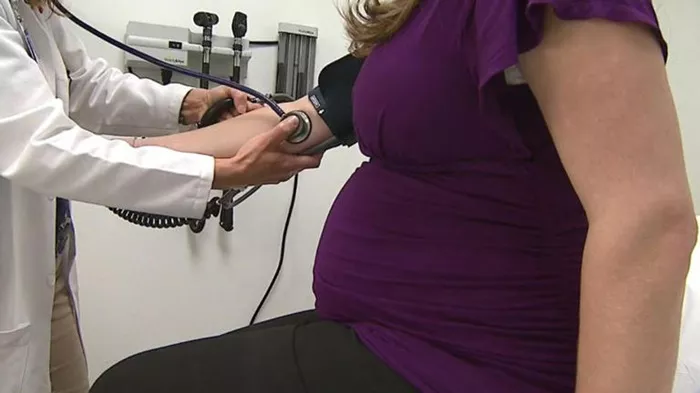Bentonville, AR — During a roundtable discussion on maternal health held in Bentonville on Wednesday, experts emphasized the need for improved education, collaboration, and the integration of telemedicine to address Arkansas’ alarming maternal health outcomes.
Arkansas ranks among the states with the highest maternal mortality rates in the nation and holds the third-highest infant mortality rate, as reported by the Arkansas Center for Health Improvement. Addressing this crisis was the focus of the discussion, moderated by Olivia Walton, board chair of Crystal Bridges Museum of American Art and founder and CEO of Ingeborg Investments. Ingeborg Investments is committed to advancing maternal health, enhancing women’s economic opportunities, and broadening access to quality care and early learning for children.
U.S. Senator John Boozman (R-Arkansas), who has been actively engaging in maternal health discussions across the state, participated in the event. He highlighted the importance of educating Arkansans about available resources as a crucial step in tackling the state’s maternal health crisis.
“Education is key,” Boozman stated. “People need to be aware of the programs that are available. The federal government provides these resources, but we must ensure that people know about them, and that means reaching out directly to where they are.”
Medicaid, a critical federal program, covers more than half of all births in Arkansas. However, the state remains one of only two that has not extended postpartum Medicaid coverage from 60 days to 12 months, an option provided by federal legislation. A 2023 bill proposing this extension failed to advance in the Legislature due to concerns about the associated costs.
Governor Sarah Huckabee Sanders has echoed the sentiment that better education about existing programs, rather than additional legislation, is what’s needed to support Arkansas mothers. During a March press conference, she argued that extending Medicaid coverage would create a “redundant program,” while signing an executive order to establish the Arkansas Strategic Committee for Maternal Health. This committee has been tasked with developing a statewide strategic plan for maternal health, which is expected to include recommendations related to Medicaid and reimbursement rates.
Arkansas Secretary of Health, Renee Mallory, revealed that the committee’s report is set to be presented to the governor by early September, with Medicaid and reimbursement rates being key topics of discussion. Senator Boozman, a former optometrist, pointed out that inadequate Medicaid reimbursement rates are a significant issue in the medical field, often discouraging physicians from accepting Medicaid patients.
“If the cost of providing a service exceeds the reimbursement, it becomes challenging for physicians,” Boozman explained. “This situation exacerbates the already limited access to healthcare in rural Arkansas.”
The state’s healthcare access challenges are compounded by the fact that several of Arkansas’ 75 counties lack hospitals, and only 35 hospitals in the state are equipped with labor and delivery units.
Panelist Cara Osborne, a nurse midwife, emphasized that a broader range of healthcare professionals, including midwives and doulas, could help alleviate the strain on Arkansas’ maternal healthcare system. Osborne noted that while the current system heavily relies on physicians in hospitals, this model is unsustainable.
“At the national level, our maternity care statistics are the most concerning of any developed country. It’s the system that’s broken, not the people,” Osborne stated. “The solution lies in diversifying the professionals involved in maternity care.”
The discussion also highlighted recent legislative actions aimed at addressing the crisis. In April, Arkansas lawmakers approved reallocating $500,000 from the Arkansas Center for Health Improvement to fund a new certified midwifery program at the University of Arkansas for Medical Sciences, slated to launch in 2026. Additionally, the Doula Alliance of Arkansas was established earlier this month with a $250,000 seed grant from Ingeborg Initiatives, marking a significant step toward incorporating doulas into the state’s maternal care framework.
As Arkansas continues to grapple with its maternal health challenges, the integration of telemedicine, the training of midwives and doulas, and greater public education are seen as vital components in improving outcomes for mothers and infants across the state.
[inline_related_posts title=”You Might Be Interested In” title_align=”left” style=”list” number=”6″ align=”none” ids=”10968,11079,6708″ by=”categories” orderby=”rand” order=”DESC” hide_thumb=”no” thumb_right=”no” views=”no” date=”yes” grid_columns=”2″ post_type=”” tax=””]































